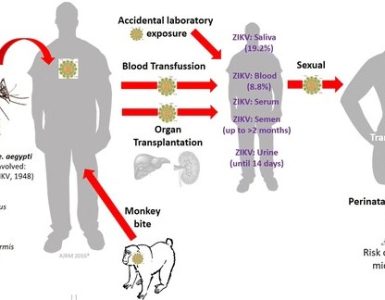People who have had the herpes virus at some point in their lives are twice as likely to develop dementia compared to those who have never been infected.
A new study from Uppsala University confirms previous research on whether herpes can be a possible risk factor for dementia. The researchers studied 1,000 70-year-olds from Uppsala over a period of 15 years. The study, now published in the Journal of Alzheimer’s Disease, found that people who had been infected with the herpes simplex virus at some point in their lives were twice as likely to develop dementia, compared to those who had never been infected.
The herpes simplex virus is very common and up to 80 percent of Swedish adults may be infected. The infection is lifelong, but the symptoms can come and go over different periods of life. Many people never get any symptoms linked to their infection.
“What’s special about this particular study is that the participants are roughly the same age, which makes the results even more reliable since age differences, which are otherwise linked to the development of dementia, cannot confuse the results,” explains Erika Vestin, a medical student at Uppsala University.
55 million people worldwide are affected by dementia. Advanced age and carrying the apolipoprotein ε4 risk gene are already known risk factors. Research has previously been conducted to investigate whether the herpes simplex virus could also be a possible risk factor for dementia; something now confirmed in this study.
“It is exciting that the results confirm previous studies. More and more evidence is emerging from studies that, like our findings, point to the herpes simplex virus as a risk factor for dementia,” continues Vestin.
Important conclusions from the study include the need to further investigate whether already known drugs against the herpes simplex virus can reduce the risk of dementia and the possibility of developing new vaccines.
“The results may drive dementia research further towards treating the illness at an early stage using common anti-herpes virus drugs, or preventing the disease before it occurs,” adds Vestin.
Source: Uppsala University

















